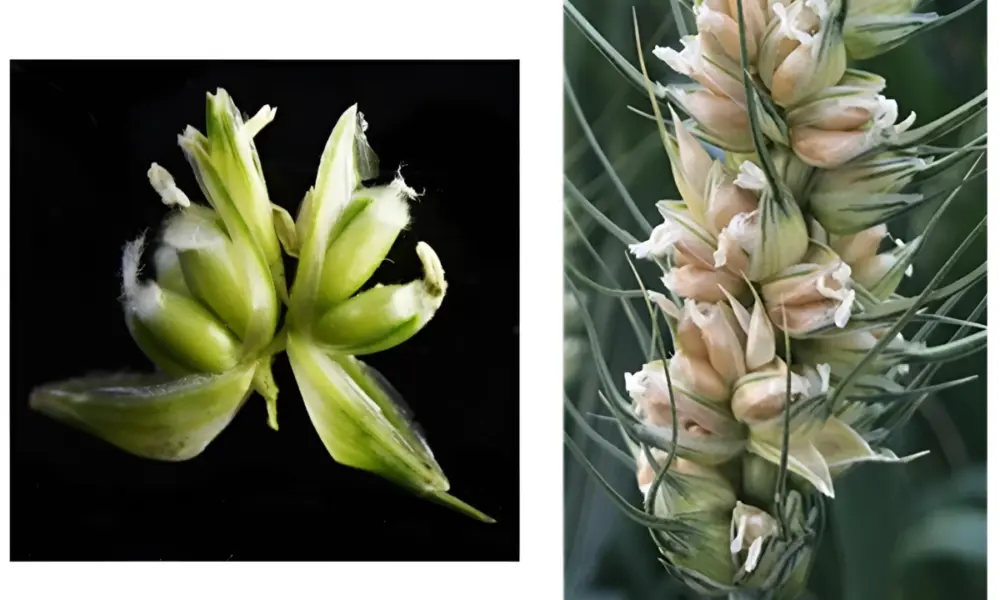Farmers may soon be able to harvest three times as much grain from the same wheat plants, thanks to a significant genetic discovery by researchers at the University of Maryland. This advancement could revolutionize wheat production by allowing the same amount of land, water, and fertilizer to yield substantially more grain.
The research focuses on a rare genetic mutation known as multi-ovary (MOV) wheat. In typical wheat plants, each floret in the seed head produces a single ovary, resulting in one grain. However, MOV plants can produce up to three ovaries per floret, leading to the potential for each floret to yield multiple grains. Until now, the underlying genetic mechanisms of this phenomenon remained largely unknown.
To uncover the genetic basis for the MOV trait, scientists meticulously mapped the DNA of MOV wheat and compared it to that of standard bread wheat. Their investigation revealed that a previously dormant gene named WUSCHEL-D1 (WUS-D1) is activated in MOV wheat. This gene plays a crucial role in enhancing the development of tissues responsible for creating additional female flower components, including pistils and ovaries.
Implications for Wheat Breeding
The findings suggest that activating WUS-D1 in cultivated wheat plants could significantly increase grain production. “Pinpointing the genetic basis of this trait offers a path for breeders to incorporate it into new wheat varieties, potentially increasing the number of grains per spike and overall yield,” said Assoc. Prof. Vijay Tiwari, co-author of the study.
The researchers believe that employing gene editing techniques could facilitate the integration of this trait into existing wheat varieties. Such advancements have the potential to address global food security challenges by enhancing the efficiency of wheat production.
This groundbreaking research is detailed in a paper recently published in the Proceedings of the National Academy of Sciences. Given the rising demand for food and the challenges posed by climate change, innovations like this could play a vital role in sustaining agricultural output in the coming years.
The implications of this study extend beyond agricultural science; they resonate with the pressing need for sustainable food production methods as the world population continues to grow. As scientists work towards harnessing this genetic trait, the agricultural sector may soon witness a transformative shift in wheat cultivation practices.







